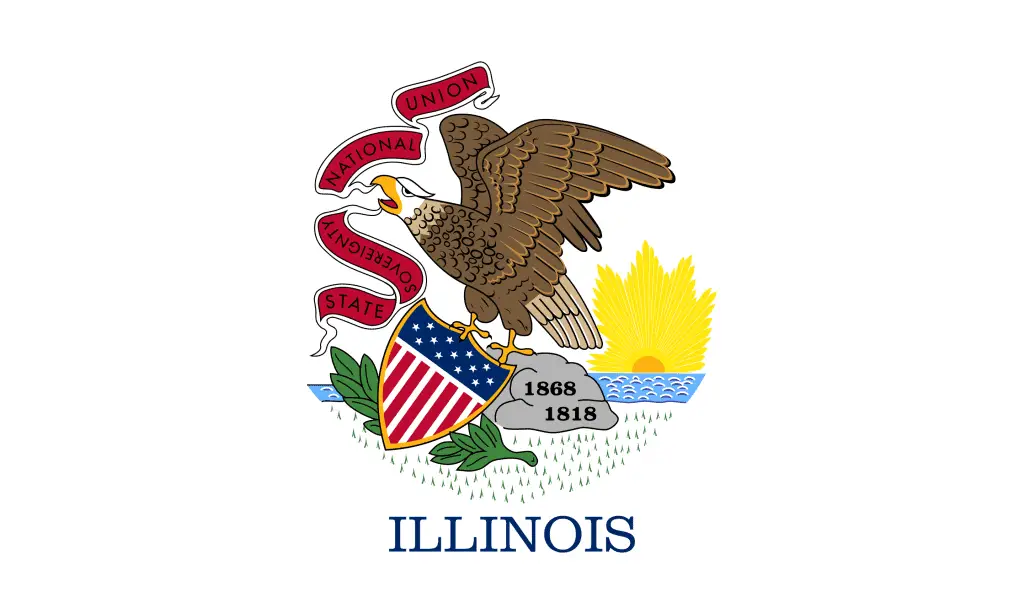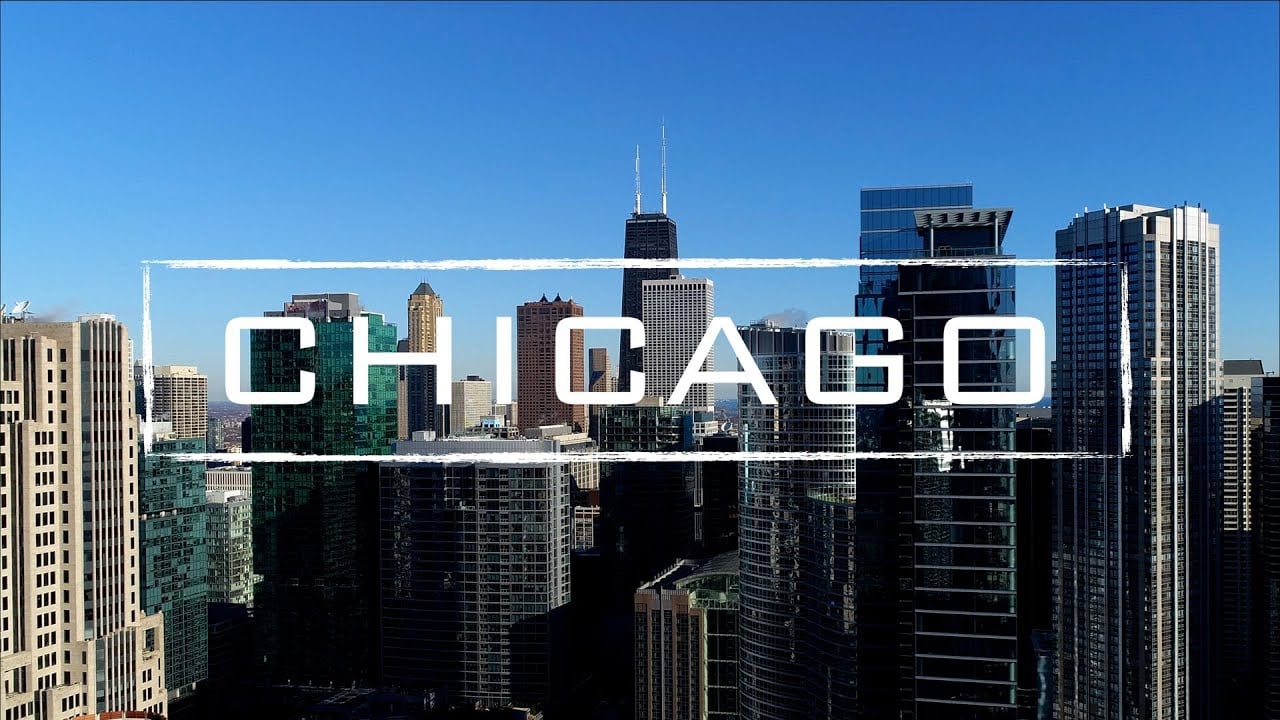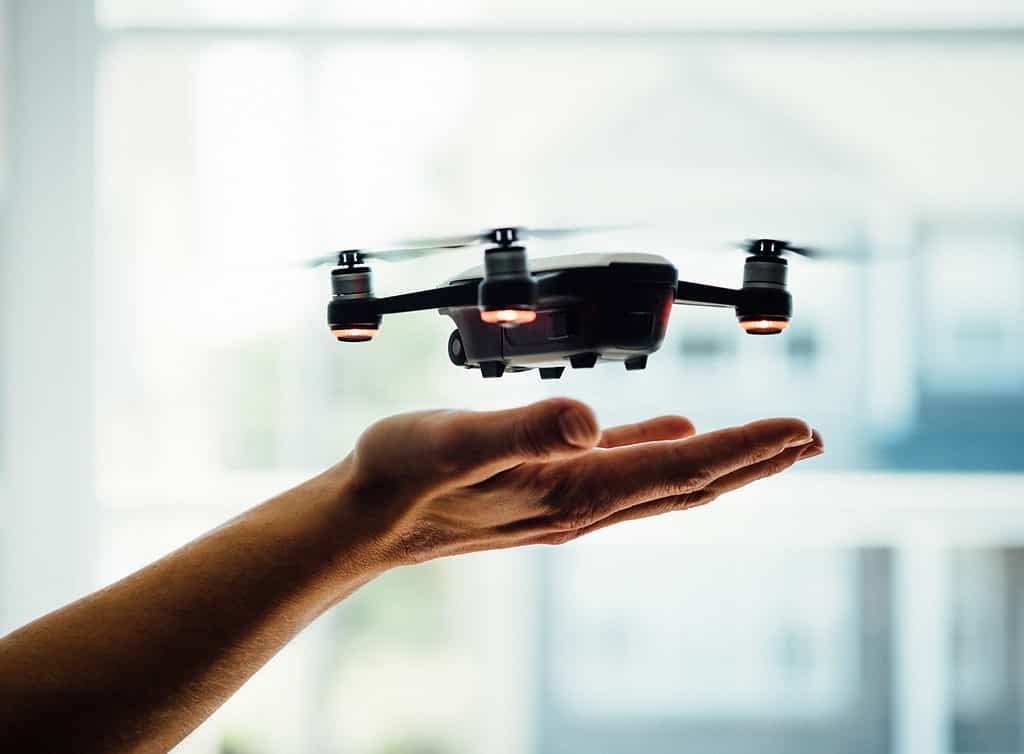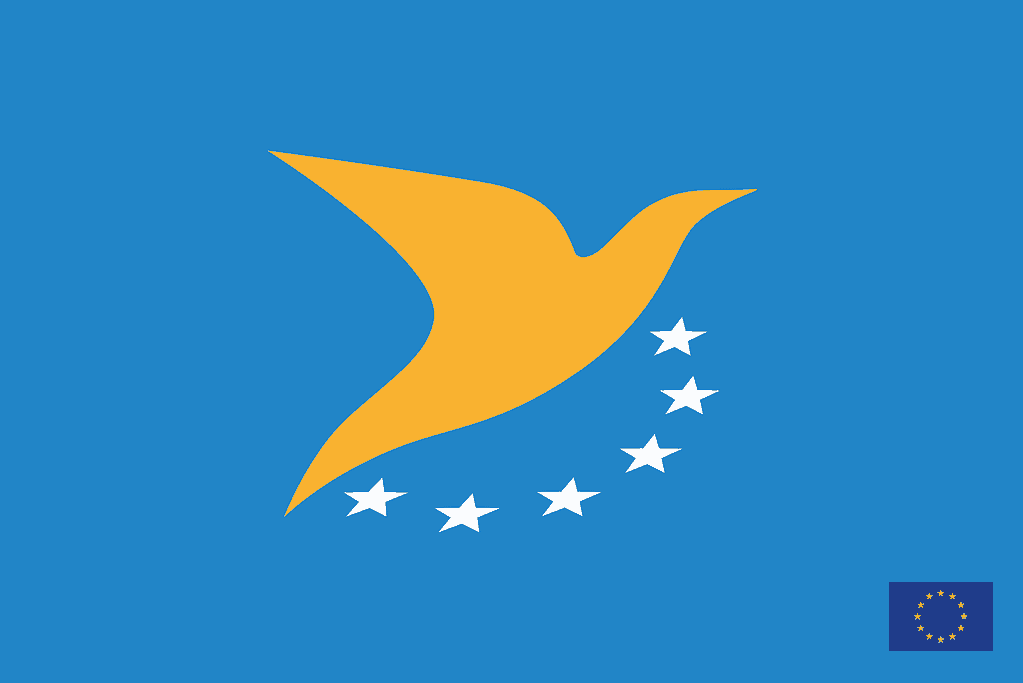Drone Laws in Illinois
Hobbyist Drone Laws For Residents of Illinois and USA
Drone Operations in Illinois are regulated.
- Hobbyist drone flights are allowed
- Hobbyist drone pilot license may be required for certain operations.
- A TRUST Test is required.
- Hobbyist Drone registration is required for hobbyists flying a drone of more than 0.55 lbs.
- Drone Remote ID is required for hobbyists.
- Drone Insurance is required in some specific areas, generally not required but recommended for hobbyists’ drone operations
Read below for more details on Hobbyist Drone Laws in Illinois and to find links to regulators and other credible sources!
Agencies Responsible for regulating drones in the State of Illinois
Drone Regulator in the USA: Federal Aviation Administration (FAA)
Contact Information
If you need additional details we have not covered or specific case assistance, you can contact the FAA directly at:
- Address: 800 Independence Avenue, SW, Washington, DC 20591
- Phone: 844-FLY-MY-UA (+1 844-359-6982) (Some users have indicated that this number tells you to use the email below and hangs up)
- Email: UAShelp@faa.gov
Please continue reading for more details on USA Drone Laws.
Link to: Illinois Legislature Drone Laws
UAS Laws – General rules for flying drones in Illinois
Drone operation in the State of Illinois is broadly governed by The Federal USA agency responsible for drone safety, the FAA. Click here for details on FAA USA Drone Laws.
In addition, the Illinois State legislature has enacted several supplemental rules specific to Illinois drone operations. The highlights are enumerated below.
Are drones allowed in Illinois?
Drones are allowed in Illinois for recreational and commercial use, subject to FAA regulations and flight controls put in place by local governments. Read on for details.
Specific additional drone use laws by Illinois legislature
620 ILCS 5/42.1 – Regulation of unmanned aircraft systems.
To the extent that State-level oversight does not conflict with federal laws, rules, or regulations, the regulation of an unmanned aircraft system is an exclusive power and function of the State. No unit of local government, including home rule unit, may enact an ordinance or resolution to regulate unmanned aircraft systems.
This Section does not apply to any local ordinance enacted by a municipality of more than 1,000,000 inhabitants.
The State can enact laws regulating drones, but not municipalities, except for Chicago, and as long as they don’t conflict with federal laws.
725 ILCS 167/ - Freedom from Drone Surveillance Act
Sec. 10. Prohibited use of drones. Except as provided in Section 15, a law enforcement agency may not use a drone to gather information.
Sec. 15. Exceptions. This Act does not prohibit the use of a drone by a law enforcement agency:
- To counter a high risk of a terrorist attack by a specific individual or organization if the United States Secretary of Homeland Security determines that credible intelligence indicates that there is that risk.
- If a law enforcement agency first obtains a search warrant based on probable cause issued under Section 108-3 of the Code of Criminal Procedure of 1963. The warrant must be limited to a period of 45 days, renewable by the judge upon a showing of good cause for subsequent periods of 45 days.
- If a law enforcement agency possesses reasonable suspicion that, under particular circumstances, swift action is needed to prevent imminent harm to life, or to forestall the imminent escape of a suspect or the destruction of evidence. The use of a drone under this paragraph (3) is limited to a period of 48 hours. Within 24 hours of the initiation of the use of a drone under this paragraph (3), the chief executive officer of the law enforcement agency must report in writing the use of a drone to the local State’s Attorney.
- If a law enforcement agency is attempting to locate a missing person, and is not also undertaking a criminal investigation.
- If a law enforcement agency is using a drone solely for crime scene and traffic crash scene photography. Crime scene and traffic crash photography must be conducted in a geographically confined and time-limited manner to document specific occurrences. The use of a drone under this paragraph (5) on private property requires either a search warrant based on probable cause under Section 108-3 of the Code of Criminal Procedure of 1963 or lawful consent to search. The use of a drone under this paragraph (5) on lands, highways, roadways, or areas belonging to this State or political subdivisions of this State does not require a search warrant or consent to search. Any law enforcement agency operating a drone under this paragraph (5) shall make every reasonable attempt to only photograph the crime scene or traffic crash scene and avoid other areas.
- If a law enforcement agency is using a drone during a disaster or public health emergency, as defined by Section 4 of the Illinois Emergency Management Agency Act. The use of a drone under this paragraph (6) does not require an official declaration of a disaster or public health emergency prior to use. A law enforcement agency may use a drone under this paragraph (6) to obtain information necessary for the determination of whether or not a disaster or public health emergency should be declared, to monitor weather or emergency conditions, to survey damage, or to otherwise coordinate response and recovery efforts. The use of a drone under this paragraph (6) is permissible during the disaster or public health emergency and during subsequent response and recovery efforts.
Sec. 20. Information retention. If a law enforcement agency uses a drone under Section 15 of this Act, the agency within 30 days shall destroy all information gathered by the drone, except that a supervisor at that agency may retain particular information if:
- there is reasonable suspicion that the information contains evidence of criminal activity, or
- the information is relevant to an ongoing investigation or pending criminal trial.
Sec. 25. Information disclosure. If a law enforcement agency uses a drone under Section 15 of this Act, the agency shall not disclose any information gathered by the drone, except that a supervisor of that agency may disclose particular information to another government agency, if:
- there is reasonable suspicion that the information contains evidence of criminal activity, or
- the information is relevant to an ongoing investigation or pending criminal trial.
Sec. 30. Admissibility. If the court finds by a preponderance of the evidence that a law enforcement agency used a drone to gather information in violation of the information gathering limits in Sections 10 and 15 of this Act, then the information shall be presumed to be inadmissible in any judicial or administrative proceeding.
Sec. 35. Reporting.
- If a law enforcement agency owns one or more drones, then subsequent to the effective date of this Act, it shall report in writing annually by April 1 to the Authority the number of drones that it owns.
- On July 1 of each year, the Authority shall publish on its publicly available website a concise report that lists every law enforcement agency that owns a drone, and for each of those agencies, the number of drones that it owns.
Sec. 40. Law enforcement use of private drones.
- Except as provided in Section 15, a law enforcement agency may not acquire information from or direct the acquisition of information through the use of a drone owned by a private third party. If law enforcement acquires information from or directs the acquisition of information through the use of a privately owned drone under Section 15 of this Act, any information so acquired is subject to Sections 20 and 25 of this Act.
- Nothing in this Act prohibits private third parties from voluntarily submitting information acquired by a privately owned drone to law enforcement. If law enforcement acquires information from the voluntary submission of that information, whether under a request or on a private drone owner’s initiative, the information is subject to Sections 20 and 25 of this Act.
720 ILCS 5/48-3 Criminal Code of 2012. – Hunter or fisherman interference
A person commits the crime of “hunter or fisherman interference” when using a drone to interfere with someone’s lawful hunting, fishing, or animals. The statute does not apply to law enforcement personnel, officers of the U.S. Fish and Wildlife Service, and employees of the Department of Natural Resources as long as their actions are authorized by law and necessary for the performance of their duties.
Specific additional UAV laws by local governments within Illinois
The City of Evanston | Municipal Law (2016)
This ordinance places a cessation on drone operations in the City of Evanston until the enactment of reasonable Federal and State regulations comes into place.
McHenry County Conservation District | County Ordinance
SECTION 3: ENGINE POWERED MODELS OR TOYS:
This county ordinance bans drones from operating over, across, or on district property unless operated by the district. District Property is the first 100ft of airspace above ground level (AGL). The only exception is with prior written permission from the Executive Director.
Drones may not be operated on, over, or across the District Property except when operated by the District. For purposes of this section, the term “District Property” includes the first 150 feet of airspace above the ground. (Class D)
Village of Schaumburg | Municipal Law (2016)
This city ordinance bans drones from within a 100ft perimeter of village property, including village right-of-way during local events.
UAS operation rules in Parks, Recreation, and Cultural Preserves
Crystal Lake Park District | Park Ordinance (2015)
This park ordinance bans all drone operations within Park District properties outside of designated areas. The only exception is during officially permitted Park District programs.
Forest Preserves of Cook County Drone Regulations
The District will allow Drone usage (i.e., drones launching from, or landing on, District property) only in designated areas, which might pose fewer risks to people, wildlife, and the District’s natural and cultural assets. The regulation identifies approved locations.
Drones Users that use drones that take off from, or land on, District property must:
- Ensure Drones comply with all applicable laws, ordinances, or policies, including, without limitation, FAA Rules and Regulations.
- Use Drones in a courteous manner with others who are often present in the District for the quiet enjoyment of nature.
- Hold either a (1) certificate of liability insurance (e.g., homeowner’s insurance) naming the District as an additional insuree, and the insurance must have a liability limit of at least $1 million; and/or (2) a current Academy of Model Aeronautics (“AMA”) membership.
- Provide proof of insurance or AMA membership upon request.
- Cease operations upon request by a member of District staff and/or other emergency safety-related personnel.
- Refrain from operating Drones in violation of privacy rights, civil rights, and liberties, and transparency related to federal/state/local laws, ordinances, policies, and procedures is prohibited.
Specific additional UAV laws in Jurisdictions within Illinois
Counties or towns within Illinois may have specific restrictions within their jurisdictions. We recommend checking the local jurisdiction for the latest regulations.
What you must know about Illinois No Fly Zones or No Drone Zones
You need to know if you can operate your drone. Under what limitations? Will you need flight authorizations? And, if so, how do you get those authorizations?
We encourage you to read our explainer. It provides more details here: Explainer – What You Must Know About No Fly Zones or No Drone Zones
How do I check for no-fly zones, no-drone zones, and uncontrolled or controlled airspace in Illinois?
The FAA has partnered with several partners to develop B4UFLY mobile apps. Theses app can tell you if there are any airspace restrictions where you want to fly.
If you are looking for a drone no-fly zone map, then B4UFLY is a good place to start.
The app provides situational awareness to recreational flyers and other drone users. You will need airspace authorizations to fly in controlled airspace. This app does not allow you to get airspace authorizations. Authorizations are available through the FAA’s Low Altitude Authorization and Notification Capability (LAANC).
The B4UFLY app is available to download for free:
B4UFLY Desktop and Mobile Applications
| Approved Service Provider (click on name to go to website) | App on iOS | App on Android | Desktop |
| Airspace Link | Yes | Yes | Yes |
| AutoPylot | Yes | Yes | |
| Avision | Yes | Yes | Yes |
| UASidekick | Yes | Yes | Yes |
How do I get authorization to fly in controlled airspace in Illinois?
The FAA runs Low Altitude Authorization and Notification Capability (LAANC). It is the only way to get permission to fly in controlled airspace.
LAANC is available to drone pilots. It applies if you are operating under the Small UAS Rule Part 107. And it applies if you are operating under the exception for Recreational Flyers.
You can get access through one of the FAA-approved LAANC UAS Service Suppliers. Some providers have apps that can be used to apply for approval in near-real time.
The companies above (with B4UFLY capabilities) are also FAA-approved UAS Service Suppliers of the Low Altitude Authorization and Notification Capability.
There are two ways to use LAANC:
- Submit a near real-time authorization request for operations. Applies to flights under 400 feet in controlled airspace around airports. This is available to Part 107 Pilots and Recreational Flyers.
- Submit a “further coordination request.” This applies if you need to fly above the designated altitude ceiling in a UAS Facility Map, up to 400 feet.
- You can apply up to 90 days before a flight. The approval is coordinated manually through the FAA. This is available to Part 107 pilots only.
LAANC is available at 726 airports. Use the manual process to apply for authorizations for airports not offering LAANC.
Drone Laws Private Property
Can you fly a drone over private property? Yes, you can fly your drone over private property, unless the property is restricted (in a no fly zone or through local regulations).
All drone operations should be conducted within privacy rules and safely. Several states and local jurisdictions (e.g. Florida) have rules that prohibit using a drone to capture an image of privately owned property, tenant or occupant without consent. Check local privacy rules.
You are not allowed to take off from or land your drone on private property without the owners permission.
Property owners concerned about intrusive drone activity may not interfere with such drones. You should document any activity preferably with video capture and contact your local law enforcement.
Notes for recreational drone pilots flying for fun in Illinois
If you have a small drone of less than 55 pounds, you can fly recreationally by following Drone Laws in the USA defined by 49 USC 44809.
In Illinois, recreational UAS operations (i.e., flying for recreational purposes) are approved under law, specifically 49 USC 44809. Please check the specific state jurisdiction for additional permissions, licensing, or clearance requirements.
Following these rules will keep you and your drone safe. And that helps keep the airspace available to everyone.
All recreational flyers must pass an aeronautical knowledge and safety test. The Recreational UAS Safety Test (TRUST) meets this rule. If law enforcement or FAA personnel ask, you must provide proof of passage.
TRUST provides education and testing on important safety and regulatory information. If you fly your drone recreationally under the Exception for Recreational Flyers, you must pass the test before you fly.
Note: If your drone weighs more than .55 pounds (lbs), you must register your drone through the FAA’s Drone Zone.
For a complete discussion on drone registration, see our Drone Registration Explainer.
To fly your drone as a recreational flyer, it’s as easy as 1-2-3
- Understand recreational flying requirements.
- Note: Non-recreational drone use is when you fly drones for business or to help out, not just for fun. For example, real estate agents may use drones to photograph houses they sell. Roof inspectors might use drones to get a closer look at roofs. A high school might have someone fly a drone to record football games and post videos on their website. Doing volunteer work with drones also counts as non-recreational use. So, non-recreational drone use is any time you operate a drone for useful work. Or help others out. It is when you are not just doing it to enjoy flying it for hobby or sport. If you’re unsure which rules apply to your flight, fly under Part 107 (See below).
- Visit the Recreational Flyers page to learn about the rules for recreational flyers.
- Download the FAA’s B4UFLY mobile app for more recreational drone flying resources.
- Take TRUST
- You may take the free online test through any FAA-approved test administrators.
- All FAA-approved TRUST test administrators offer the test free.
- All test questions are correctable to 100% before issuing your completion certificate.
- After completing TRUST, you must download, save, or print your completion certificate.
- If you lose your certificate, you will need to retake TRUST.
- View a list of TRUST Test Administrators
- Receive your certificate
- After you pass the test, you will receive a certificate. The test administrator you selected gives you your certificate.
- Test administrators will not keep a record of your certificate. If law enforcement officers ask, you must present a copy of your certificate.
General Rules for Recreational Flyers
USC44809 is the Exception for Limited Recreational Operations of Unmanned Aircraft. The law describes how, when, and where you can fly drones for recreational purposes. Following these rules helps keep people, your drone, and our airspace safe:
- Fly only for recreational purposes (personal enjoyment).
- Follow the safety guidelines of an FAA-recognized Community-Based Organization (CBO). Read Advisory Circular 91-57C. It provides more information on how to become an FAA-recognized CBO,
- Keep your drone within the visual line of sight. Or use a visual observer who is physically next to you and directly communicating with you.
- Give way to and do not interfere with other aircraft.
- Fly at or below FAA-authorized altitudes in controlled airspace with prior FAA authorization. Controlled airspace is Class B, C, D, and surface Class E designated for an airport. Get your FAA authorization using LAANC or DroneZone.
- Fly at or below 400 feet in Class G (uncontrolled) airspace. Note: Flying drones in restricted airspace is not allowed. Before the flight, drone pilots should always check for airspace restrictions. You can do so on the B4UFLY app or the UAS Facility Maps webpage.
- Take The Recreational UAS Safety Test (TRUST) and carry proof of test passage when flying.
- Have a current FAA registration. Mark (PDF) your drones on the outside with the registration number. And carry proof of registration when flying. Starting September 16, 2023, registered drones must broadcast Remote ID information. The FAA temporarily delayed enforcement to March 16, 2024. That law is now in place and being enforced.
- Do not operate your drone in a manner that endangers the safety of the national airspace system.
Recreational drone pilots must not violate safety requirements. Nor should they operate their drone flight carelessly or recklessly. You could be liable for criminal and/or civil penalties if you do.
You do not need a drone license if your drone use is recreational and falls within the scope of 44809. But, to fly your drone commercially, you must first get a Remote Pilot Certificate (RPC). This is also true for flights under the FAA’s Small UAS Rule (Part 107). The RPC is also known as a drone license or a Part 107 certificate. You may want to get your drone license for the flexibility it allows in your drone flights.
For more details on drone licensing, please see our Drone License Explainer.
Commercial Drone Laws For Residents of Illinois and USA
Drone Operations in Illinois are regulated.
- Commercial drone flights are allowed
- A commercial drone pilot license is required
- Commercial Drone registration is required in Illinois
- Drone Remote ID is required for Commercial Drone Operators.
- Drone Insurance is not required but recommended for commercial drone operations
Read below for more details on Commercial Drone Laws in Illinois and to find links to regulators and other credible sources!
Notes for operating Commercial Drone Services in Illinois
If you have a small unmanned aircraft that is less than 55 pounds, you can fly for work or business by following the Drone Laws in the USA defined by FAA Part 107 guidelines.
Commercial drone operations in Illinois are approved under the FAA Part 107. Please check the specific state jurisdiction for additional permissions, licensing, or clearance requirements.
For a complete review of the FAA Part 107 regulation, please see our comprehensive FAA 107 Explainer.
Note: The Operations Over People rule became effective on April 21, 2021. Drone pilots operating under Part 107 may fly at night, over people and moving vehicles without a waiver as long as they meet the requirements defined in the rule. Airspace authorizations are still required for night operations in controlled airspace under 400 feet.
If you have a small drone of fewer than 55 pounds, you can fly for work or business by following the Part 107 guidelines. There are three main steps to fly under Part 107 rules.
Step 1: Learn the Rules
Ensure you understand what is and is not allowed under Part 107 rules.
If you are unsure if Part 107 rules work for you and your intended operation, check our user identification tool.
Some operations will need a waiver. Here are the regulations specified in §107.205 that are subject to waiver:
- Operation from a moving vehicle or aircraft – §107.25
- Operation at Night – §107.29(a)(2) and (b)
- Visual line of sight aircraft operation – §107.31
- Visual observer – §107.33
- Operation of multiple small unmanned aircraft systems – §107.35
- Yielding the right of way – §107.37(a)
- Operation over human beings – §107.39
- Operation in certain airspace – §107.41
- Operating limitations for small unmanned aircraft – §107.51
- Operations Over Moving Vehicles – §107.145
Learn more about Part 107 Waivers.
Drone operators should avoid flying near airports. It is difficult for crewed aircraft to see and avoid a drone while flying. Remember that the drone operator must avoid manned aircraft. You are responsible for any safety hazard your drone creates in an airport environment.
Step 2: Become an FAA-Certified Drone Pilot by Passing the Knowledge Test
For more details on drone licensing, please see our Drone License Explainer.
To be eligible to get your Remote Pilot Certificate, you must be:
- At least 16 years old
- Able to read, write, speak, and understand English
- Be in a physical and mental condition to safely fly a UAS
Study for the Knowledge Test
- Review Knowledge Test Suggested Study Materials provided by the FAA.
Get an FAA Tracking Number (FTN)
- Create an Integrated Airman Certification and Rating Application (IACRA) profile. Then, register for the knowledge test.
Schedule an Appointment
- Take the Knowledge Test at an FAA-approved Knowledge Testing Center.
Complete FAA Form 8710-13
- Once you’ve passed your test for a remote pilot certificate (FAA Airman Certificate and/or Rating Application), log in to the FAA Integrated Airman Certificate and/or Rating Application System (IACRA)* to complete FAA form 8710-13.
- Review the entire process to get your Remote Pilot Certificate.
Step 3: Register your Drone with the FAA
For a complete discussion on drone registration, see our Drone Registration Explainer.
Registration costs $5 and is valid for three years. You’ll need a credit or debit card and the make and model of your drone handy to register. Learn more about registering your drone.
- Create an account and register your drone at FAADroneZone. Select “Fly sUAS under Part 107.”
- Once you’ve registered, mark your drone (PDF) with your registration number. The number will be helpful in case it gets lost or stolen.
Commercial rules in Parks, Recreation and Cultural reserves
We suggest you contact the local parks agencies and check for specific permissions required.
Drone Laws For Foreign Visitors To Illinois (not USA Residents)
Drone Operations in Illinois are regulated.
- Foreign visitor drone flights are allowed in Illinois
- Foreign visitor drone pilot license is required
- Drone registration is required for visitors/tourists
- Drone Remote ID is required in Illinois for tourists..
- Drone Insurance is not required but recommended for tourist drone operations
Read below for more details on Drone Laws in Illinois for Visitors (Tourists) and to find links to regulators and other credible sources!
Drone Laws For Government Drone Operators
Drone Operations in Illinois are regulated.
- Government drone flights are allowed in Illinois
- Government drone pilot license is required
- Drone registration is required for Government operations
- Drone Remote ID is required in Illinois for Government operations..
- Drone Insurance is not required for Government drone operations
Read below for more details on Drone Laws Illinois for Government Drone Operations and to find links to regulators and other credible sources!
Useful published information on flying drones in Illinois
We have partnered with the FAA and other drone enthusiasts in supporting an internet educational campaign called Know Before You Fly. The tips, pointers, and resources apply to Illinois Drone Users also. Please visit the site for additional information: Know Before You Fly
Association for Unmanned Vehicle Systems International – Mostly for commercial drone service providers and users.
Academy of Model Aeronautics – Mostly for hobbyists
Authoritative Sources of Information on Illinois Drone Laws
We will attempt to keep an updated list of online authoritative links to regulators and other official websites here:
- Drone Regulator Website: FAA Drone Website: https://www.faa.gov/uas/
- Link To SUAS Laws: 49 USC 44809 or 14 CFR Part 107 Small Unmanned Aircraft Systems
- State-Specific Laws: See sections above.
- No Fly Zone Maps/Locations: See No Fly Zone Section above – Illinois Drone Map – B4UFLY – https://b4ufly.aloft.ai/
- UAV Registration Site: FAADroneZone
- Drone Operator Licensing Site: TRUST or FAA in person (see sections above)
- The Recreational UAS Safety Test: The Recreational UAS Safety Test (TRUST)
- Others: Association for Unmanned Vehicle Systems International – Mostly for commercial drone service providers and users.
- Others: Academy of Model Aeronautics – Mostly for hobbyists
- Others: US Forest Service Recreational Drone Tips
NOTE: This page is about the Regulation of Unmanned Aerial Vehicles: Small Unmanned Aerial Systems (SUAS), Small UAS, Remote Piloted Aerial Systems (RPAS), unmanned aerial vehicle (UAV), Unmanned Aerial System (UAS), and drone are interchangeable terms unless specified. Model Aircraft, toy, remote-controlled, and RC aircraft may be covered by the same regulations unless specified.
Find out why
We think you must use a Drone Preflight Checklist
And a Drone Post-flight checklist
Free Drone Flight Checklist PDF
This Drone Flight Checklist is better than others.
It’s free!
It includes both the preflight checklist and post-flight checklist
It’s an easy-to-use printable PDF that covers all your bases.
Traveling with a Drone?
Click here to read our Comprehensive Guide For Traveling With A Drone.
LET US CONNECT YOU
Calling All Drone Service Companies, Trainers, Tour Guides with Drone Experience
Contact Us with your website, email address and phone number using our Contact Page
We want to share your information with visitors who look for credible providers that follow the rules.
NOW IT’S YOUR TURN





Leave a Comment